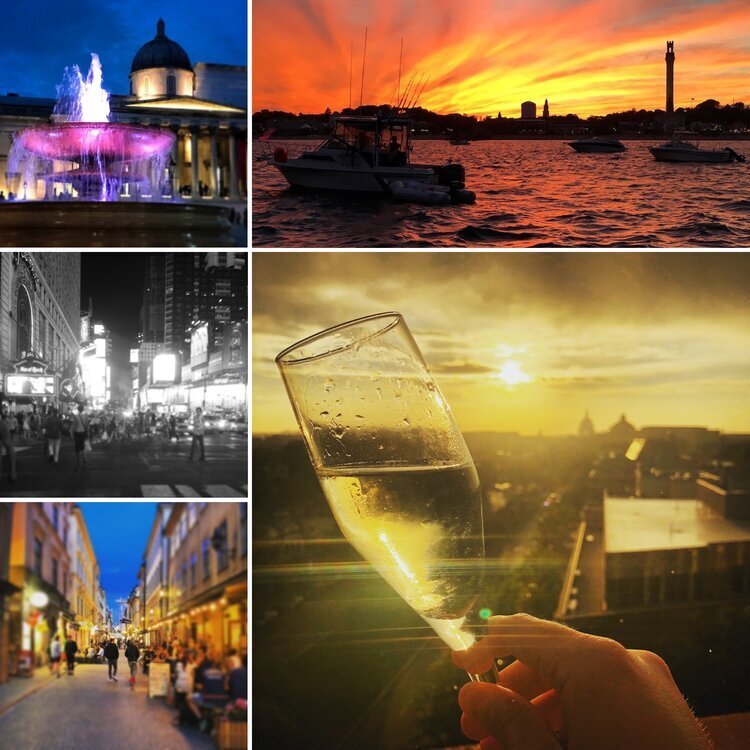On “being local”, the terroir that—like food and wine—imparts unique character to us all
Join us for the Field Blends virtual happy hour and book release!
27 May @ 7:30pm Eastern Time - or - 1 June @ 7:00pm UK Time
“We tend to form deep relationships with the several communities that we would each describe as being fundamental to our identities and how we experience the world. We visit new places, but we often value equally the roots that ground us in places that are particularly meaningful. Wine lovers might think of this as the terroir that gives each person—like a fine wine—such unique character.”
— Excerpt from "Field Blends"
When I think of where I feel at home now, where I feel truly “local”, I think of (clockwise left to right) London, Provincetown (Massachusetts), Washington (including Alexandria and Arlington), Stockholm, and New York. Hence the “🇺🇸🇬🇧🇸🇪” listed as the location on my Twitter profile.
Field Blends is a story that both revels in localness—everything occurs in real-world places—and wrestles with the idea of home. Chris Jacobson, the narrator, spends parts of 277 pages trying to figure out how to honor the gifts given to him in the small rural town of his youth, how to relate to that town now that he has gone urban and international, where his home is now, and even which country is his own.
These are such important questions for so many of us. And they form part of why I used wine as a metaphor throughout the story. For wine—and all the rest we eat and drink—like people, is fundamentally rooted in place. Though often exported and passed around the globe, wine is a reflection of the terrain in which its grapes grew, the climate that surrounded it and the hands that tended it when it was young.
So as we officially release the book this week, I want to know where you’re from. Where’s your hometown? Where do you consider home today? Where are you local?
(I love the “where are you local” take on this idea, which author Taiye Selasi so elegantly discussed in a 2014 TED Talk that I directly reference in Chapter Thirteen. Go watch it!)
In short, Selasi suggests that “our experience is where we're from”, that one's localness (so to speak), is the confluence of three factors…
Rituals. What are your daily rituals? Where do these rituals occur? In what city or cities do shopkeepers know your face?
Relationships. Who are the people who shape your days? To whom do you speak at least once a week? Who shapes your weekly emotional experience? These relationships are home.
Restriction. Where are you able to live? What passport do you hold? Are you restricted by racism, from feeling fully at home, from otherwise living in the locality where you most feel at home?
The answers to these questions change for each of us over time. Five years ago I’d not have considered myself local in London, though now there are few places where I feel more at home, filled with people who profoundly shape my every day. I conversely once felt local in Berkeley Springs, WV, and though it will always feel familiarly special, I’m no longer local there. Madrid is one of my favorite places in the world, and though I am grateful for the warm friendships I share with several people there, I lack the daily close personal interactions necessary to consider myself a true local.
So try this little game with yourself (and your pub mates, virtual or in-person) whilst you’re at home dreaming of home—wherever home may be—in the age of COVID (and beyond), on the release of a book that explores the very nature of locality, home, and where each of us most belong. As for me, I find that I’m five times a local, and incredibly grateful to the people who draw me home to each.


